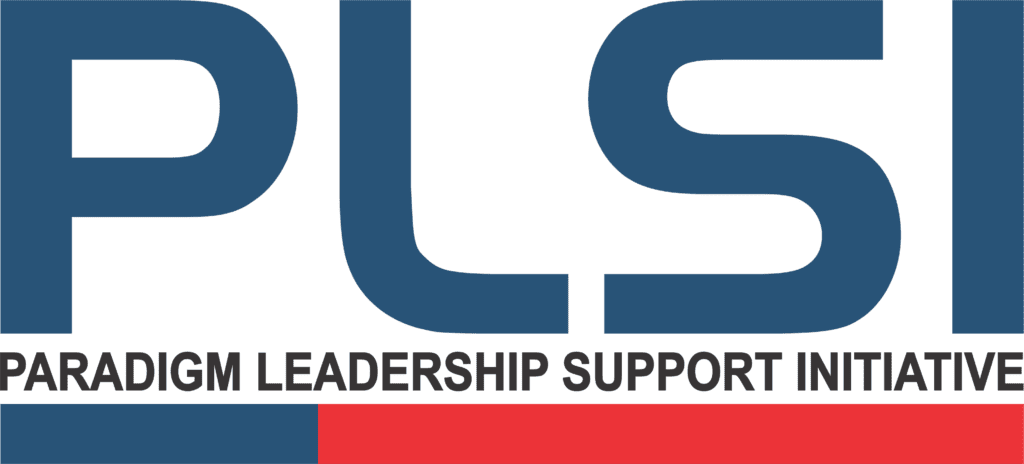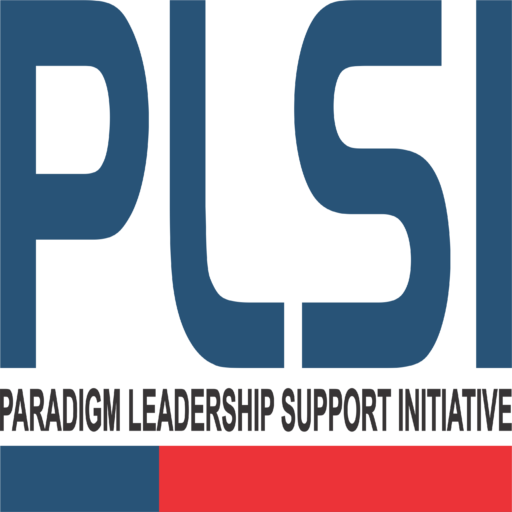Introduction: Addressing the Challenges of Women Farmers in Nigeria
In Nigeria, women constitute over 52% of smallholder farmers, playing an essential role in food production and rural development. However, despite their vital contributions, these women face systemic challenges, including limited access to agricultural resources, inadequate financial support, and minimal inclusion in policy-making processes. One major factor exacerbating these challenges is the lack of targeted budgetary allocations and ineffective oversight of agricultural funds, which hampers the socio-economic advancement of women farmers.
Oversight institutions, such as the Office of the Auditor-General and the Accountant-General’s Office, are tasked with ensuring accountability and transparency in managing public resources. However, these institutions often encounter challenges, including capacity gaps, inadequate funding, and limited public engagement. Consequently, audit recommendations that could enhance transparency and improve financial management remain poorly implemented.
Recognizing the need to strengthen these oversight institutions and advocate for inclusive agricultural budgeting, the Smallholder Women Farmers Organization in Nigeria (SWOFON) partnered with PLSI to deliver the SPARK2 Project. Supported by IBP Nigeria, this initiative aimed to enhance transparency and accountability in the budgeting, release, and auditing of agricultural funds across five focal states: Nasarawa, Niger, Anambra, Jigawa, and Oyo.
Intervention: PLSI’s Technical Support to SWOFON
PLSI, as a leading civic organization with a proven track record of enhancing public finance management in Nigeria, provided technical support to SWOFON to engage key stakeholders on effective budgeting, timely fund release, and robust auditing of agricultural funds. The project aimed to ensure that smallholder women farmers receive a fair share of the commonwealth, addressing their unique challenges through structured stakeholder dialogues.
The Stakeholders Dialogue on Enhancing Accountability and Transparency with Oversight Institutions was organized across the SPARK2 five focal states. It brought together Offices of Auditors-General, Accountant-Generals, Public Accounts Committees, CSOs, relevant MDAs, and women farmer leaders. PLSI’s Program Officer, Monsuru Olatunji, and Communications Associate, Sunday Taiwo, led discussions and provided insights on budget transparency, inclusion, and performance auditing.
State-by-State Engagement: Dialogues and Outcomes
1. Nasarawa State
The engagement in Nasarawa kickstarted the series in April, gathering stakeholders from the Ministries of Budget and Planning, Agriculture, and Women Affairs, alongside the State Audit Office, SWOFON leaders, media, and civil society organizations. The session explored how to ensure transparency and impact in agricultural and gender-responsive budgeting.
Monsuru Olatunji commended improvements in audit visibility but raised concerns about the lack of disaggregated tracking of agricultural program beneficiaries, especially women. He noted that while several programs exist on paper, implementation often fails to reach the intended targets.
Key Recommendations:
- Conduct performance audits on major agriculture schemes to evaluate beneficiary reach and gender responsiveness.
- Disaggregate budget data to reflect specific provisions and outcomes for women farmers.
- Establish clear mechanisms for feedback and course correction during budget implementation.
Stakeholder Commitments:
Stakeholders from the Ministries of Budget and Planning, Agriculture, and Women Affairs collectively acknowledged the gaps and pledged to work with SWOFON to develop a Gender-Inclusive Monitoring Framework. They committed to integrating SWOFON’s inputs into budget processes and supporting a pilot initiative to track program impact on rural women farmers.
2. Niger State
The stakeholders’ dialogue in Niger State convened representatives from the Ministry of Agriculture, Department of Women Affairs, State Planning Commission, the Office of the Auditor-General, SWOFON’s State executives and members, and various civil society groups. The conversation centered on bridging the gap between budget allocations and real impact, particularly for rural women in agriculture.
Monsuru commended the state’s ranking on the 2023 State Audit Efficiency Index but raised concerns about the poor alignment between audit findings and actual improvements in budget execution. He stressed the importance of performance audits that verify whether allocations lead to tangible outcomes for women farmers.
Key Recommendations:
- Strengthen implementation tracking systems to ensure that budgeted agricultural resources reach women farmers.
- Institutionalize citizen-led budget monitoring frameworks with grassroots inclusion.
- Use audit findings to inform mid-year budget reviews and implementation corrections
Stakeholder Commitments:
Representatives from the Ministry of Agriculture, Department of Women Affairs, and the Audit Office welcomed the recommendations and committed to collaborating with SWOFON to develop a Charter of Demands that would outline the pressing needs of women farmers. They assured that the document would be reviewed across MDAs to guide program design, budget priorities, and oversight mechanisms.
3. Anambra State
The stakeholders’ dialogue in Anambra State brought together the Auditor-General of the State, Permanent Secretaries from the Ministries of Finance, Agriculture, and Women Affairs, as well as SWOFON’s national and state executives, civil society actors, and media representatives. During the session, Sunday Taiwo commended the Anambra State Audit Office for consistently publishing audit reports online for public accessibility since 2016. He highlighted the Office’s commitment to involving CSOs and the media in audit processes, which has fostered public engagement and accountability. However, he raised a significant concern about the lack of a domesticated State Audit Law in Anambra. Currently, the State Audit Institution (SAI) operates under the 1999 Constitution of the Federal Republic of Nigeria, making Anambra one of only two states in Nigeria without a dedicated state audit law. This limitation restricts the SAI’s ability to comprehensively audit all MDAs, including the Ministry of Agriculture, where SWOFON would ideally benefit from effective oversight.
Taiwo emphasized the need to enact a State Audit Law, which would empower the audit office to perform its statutory functions more effectively. Additionally, Taiwo stressed the importance of conducting performance audits, particularly focusing on agricultural initiatives targeting women farmers, such as the Anambra State Government’s ongoing “Operation Farm to Feed Campaign”. He explained that performance audits would help assess the efficiency, effectiveness, and impact of these initiatives, ensuring that resources are used optimally and that intended beneficiaries are adequately supported.
He also advocated for a dedicated budget line for smallholder women farmers in Anambra’s annual budget to ensure targeted funding for programs that address their unique challenges.
Stakeholder Commitments: Representatives from the Ministries of Finance, Agriculture, and Women Affairs acknowledged the recommendations and committed to ensuring that SWOFON Anambra State Chapter formulates a Charter of Demand to be submitted to all relevant MDAs. They assured that the document would be reviewed to implement necessary policy actions that cater to the interests of women farmers.
4. Jigawa State
In Jigawa State, the engagement session examined the 2024 and 2025 state budgets, focusing on how participatory processes can meaningfully shape budget outcomes. Attendees included officials from the Ministry of Agriculture, Department of Women Affairs, State Audit Office, SWOFON representatives, and civil society actors.
Monsuru acknowledged steady agricultural allocations in Jigawa’s budgets but flagged two major concerns:
- SWOFON’s inputs at town hall meetings are rarely reflected in the final budgets, undermining the intent of citizen participation.
- There’s a persistent disconnect between allocation and actual delivery of agricultural programs to women.
Key Recommendations:
- Institutionalize citizen input tracking system from town hall meetings to the final budget.
- Commission performance audits of agricultural programs to verify accessibility for rural women.
- Promote open publication of implementation criteria and progress reports on women-focused initiatives.
Stakeholder Commitments:
Stakeholders from the Ministries of Agriculture, Women Affairs, and the Audit Office acknowledged these concerns and pledged to institutionalize follow-up mechanisms that ensure citizens’ inputs, especially those from SWOFON are documented, submitted, and tracked through the budgeting cycle. They also expressed willingness to review implementation reports jointly with civil society to improve transparency.
5. Oyo State
The final session of the stakeholder dialogue series took place in Oyo State, with representatives from the Office of the Auditor-General, Ministry of Agriculture, and Ministry of Women Affairs in attendance. Sunday Taiwo commended the Oyo State Audit Office for its significant progress in publishing the Citizens Accountability Report for the 2023 financial year. This remarkable achievement made Oyo one of the 11 states that published the document across the federation, earning recognition from PLSI during the public presentation of the Subnational Audit Efficacy Index 2024 in Abuja on March 20th, 2025.
However, Taiwo also raised concerns about the lack of online publication of the 2023 Audit Report on the accounts of the Oyo State Government. Despite the state’s tradition of not publishing audit reports online, this practice limits public access to financial information and hinders the ability of citizen groups like SWOFON to understand how public funds are managed. Taiwo pointed out that the Oyo State Audit Commission Law 2021 mandates the electronic and manual publication of annual statutory reports. Specifically, Section 27(1)(n) states that:
“The Auditor-General shall publish electronically and manually the annual statutory reports of the State and Local Government.”
Additionally, Taiwo addressed the lack of financial and administrative autonomy for the Office of the Auditor-General. Although the Oyo State Audit Commission Law 2021 provides for financial independence, this legal provision is not yet operational. Consequently, the Office remains financially dependent on the executive arm, which undermines its ability to independently execute audit functions.
Taiwo also called for the prioritization of smallholder women farmers in budget planning and allocation, stressing the need to include women representatives in budget decision-making convenings to ensure policies are responsive to their specific needs.
Stakeholder Reactions: The Auditor-General’s representative clarified that the audit report is available manually upon request. However, Taiwo reiterated the need for online publication to enhance transparency and build public trust.
Representatives from the Ministries of Agriculture and Women Affairs also committed to increasing the prioritization of SWOFON’s interests. They advised SWOFON to continue engaging with AFAAN (the umbrella body of farmers in the state), noting that this affiliation has yielded positive outcomes and will further enhance the visibility and recognition of smallholder women farmers.
General Recommendations and the Way Forward
Across all states, PLSI consistently recommended:
- Creating specific budget lines for smallholder women farmers to guarantee consistent funding.
- Ensuring timely and transparent fund release to support agricultural projects.
- Implementing performance audits to measure the impact and effectiveness of allocated funds.
- Involving women farmers in budget decision-making, implementation, and oversight to ensure inclusiveness.
- Strengthening institutional frameworks for public finance management and accountability.
By facilitating these dialogues, PLSI not only strengthened the capacity of oversight institutions but also amplified the voices of women farmers, advocating for fair and transparent resource allocation. This intervention aligns with PLSI’s commitment to promoting public accountability and ensuring that agricultural funds are judiciously utilized to benefit smallholder women farmers.
Conclusion: Building Sustainable Accountability
PLSI’s strategic support to SWOFON under the SPARK2 Project has significantly contributed to strengthening oversight practices in agriculture-related public finance management. The proactive engagement of stakeholders across Nasarawa, Niger, Anambra, Jigawa, and Oyo states demonstrates the potential for collaborative governance that directly addresses the needs of women farmers.
By fostering inclusive budget planning, efficient fund utilization, and auditing practices, PLSI and SWOFON are paving the way for more accountable governance in agriculture, ensuring that women farmers receive their rightful share of public resources.








